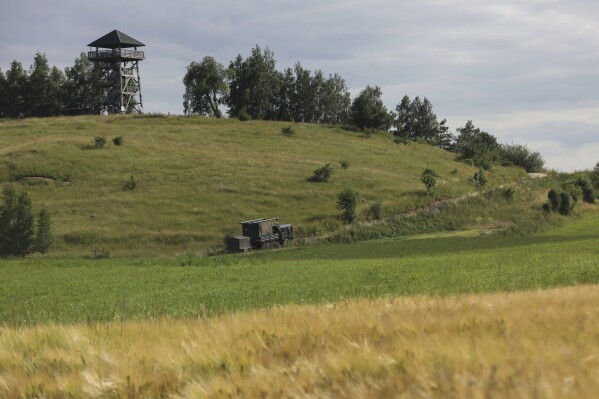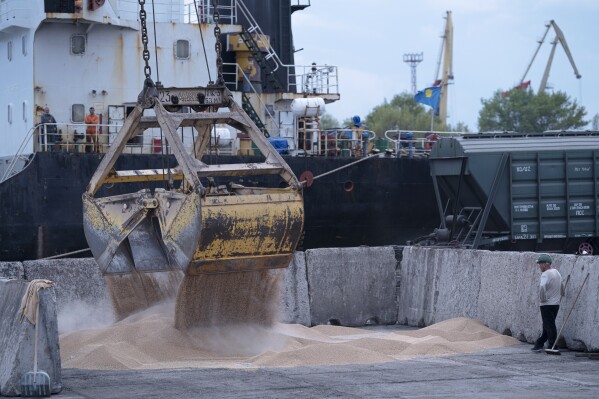Lithuania declares more than 1,000 Belarusians and Russians to be national security risks
VILNIUS, Lithuania (AP) — Lithuania declared more than a thousand citizens of Russia and Belarus living in the country to be threats to national security on Friday and said it was stripping them of their permanent residency permits.
The decision comes after the government asked the Russians and Belarusians to answer a questionnaire that included questions about their views on Russia’s invasion of Ukraine and the status of Crimea, the Ukrainian territory which Russia illegally annexed in 2014.
Lithuania, a Baltic nation which declared its independence from the Soviet Union more than 30 years ago, is a democracy that belongs to NATO and the European Union. It has been a strong backer of Ukraine and also a place of refuge in recent years for many who have fled an authoritarian crackdown in neighboring Belarus and increased repression in Russia.
The Migration Department said Friday that it had established that 1,164 Belarusian and Russian citizens residing in Lithuania posed a threat to national security, a decision that was based on an evaluation of public and non-public information. It said 910 of those were Belarusian citizens and 254 Russian citizens.
 Poland and Lithuania say they fear provocations from Russia and Belarus at NATO’s eastern flank
Poland and Lithuania say they fear provocations from Russia and Belarus at NATO’s eastern flank
 Ruta Meilutyte of Lithuania breaks world record in women’s 50-meter breaststroke
Ruta Meilutyte of Lithuania breaks world record in women’s 50-meter breaststroke
 NATO will step up security in Black Sea region after Russia declares parts are unsafe for shipping
NATO will step up security in Black Sea region after Russia declares parts are unsafe for shipping
How people answered the questionnaire was taken into consideration in deciding whether to grant or deny residence, according to the Migration Department, the government office that carried out the survey.
Those deemed to be national security threats are only a fraction of the Belarusians and Russians living in Lithuania. According to the Migration Department, more than 58,000 Belarusian citizens and 16,000 Russian citizens are currently residing in Lithuania. They are required to renew their residence permits every three years.
Those stripped of permits can appeal the decision in court. Others will have up to a month to leave the country, according to the Migration Department.
There was no immediate reaction from the Russian or Belarusian governments.
Viktor Voroncov, a businessman who moved from Russia several years ago, learned Lithuanian and obtained citizenship, said he agreed with the move.
“I know many Russians who served in the Soviet and later in Putin’s army. They are married to Lithuanian wives, they live here, maintain close contacts with comrades in arms back in Russia and are spreading Kremlin propaganda constantly,” Voroncov said.
“Lithuania is a democratic country and tolerates different views. Even their propaganda was OK until the war started, but things have changed and they must go,” he said.
Lithuania also has an ethnic Russian minority that makes up about 5% of the population. They are citizens of Lithuania and were not required to answer the questionnaire.
Disclaimer: The copyright of this article belongs to the original author. Reposting this article is solely for the purpose of information dissemination and does not constitute any investment advice. If there is any infringement, please contact us immediately. We will make corrections or deletions as necessary. Thank you.



